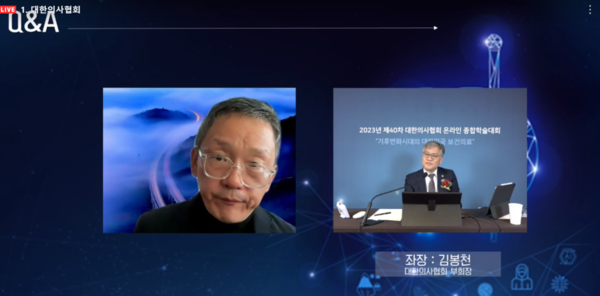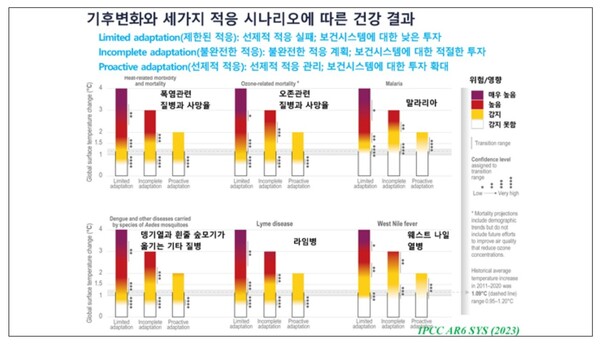
As climate change becomes increasingly unpreventable, an expert stressed the need to establish a healthcare system that preemptively responds to health risks.
"Climate change does not cause diseases but changes how diseases spread. The healthcare system needs to be equipped to respond,” said Cho Cheon-ho, a collaboration professor at Kyung Hee University, at the 40th Korean Medical Association (KMA)'s online congress on "Korean Healthcare in the Era of Climate Change."
"Changes in temperature and precipitation lengthen the malaria transmission period, and environmental degradation increases human contact with wildlife, leading to a faster increase in zoonotic diseases," Cho said. "Assuming a five-degree increase in global average temperature by the end of this century, about 1 billion people will be exposed to mosquito-borne diseases by 2080. Melting permafrost in the Arctic Circle could unleash new bacteria and viruses and create diseases to which humans are not immune."
Also problematic are climate change-induced heat waves. If global temperatures rise by an average of 1.5 degrees, someone born in 2020 will be four times more exposed to heat waves than someone born in the 1960s.
"If global temperatures rise by an average of two degrees Celsius, the risk of heat exposure increases sixfold, and by three degrees Celsius, the risk increases sevenfold," Cho said. “The younger you are, the greater the health risks from heat waves."

He said that since climate change has already begun, the response should focus on adaptation. This means anticipating the "consequences" of climate change and controlling the risks.
"The same risk can be reduced, depending on what adaptation systems are in place. We need a proactive response that identifies how future climate change will affect human health and builds a system to respond to it," Professor Cho said. "In 2015, the U.N. Paris Climate Agreement set a goal of limiting the increase in global average temperature to two degrees. This is what we call a sustainable future."
But time is running out, he noted. Already, climate change is progressing "like a car on the highway with its foot on the gas." And while countries are changing their financial and economic systems to adapt to climate change, Korea is "very far behind."
He emphasized that "healthcare system capacity" is crucial for a rapid adaptation system in a short time.
"We need to control the risks (from climate change)," he said. “The final goal of climate adaptation is to create a situation where risks can be controlled, not a situation where risks are 'zero.'"
Human history has leaped forward in times of crisis. Cho stressed that the climate crisis is also an opportunity for humans to build a better world.
"Nature no longer determines the future climate. The future climate will be determined by what kind of world we build,” he added.

